Shyam Benegal
Birth : 1934-12-14, Alwal, Hyderabad, British India (now Andhra Pradesh, India)
History
From Wikipedia, the free encyclopedia.
Shyam Benegal (born 14 December 1934, in Trimulgherry, near Secunderabad is a prolific Indian director and screenwriter. With his first four feature films Ankur (1973), Nishant (1975) Manthan (1976) and Bhumika (1977) he created a new genre, which has now come to be called the "middle cinema" in India although he himself has expressed dislike in the term preferring his work to be called New or Alternate cinema.
He was awarded the Padma Shri in 1976 and the Padma Bhushan in 1991. On 8 August 2007, he was awarded the highest award in Indian cinema for lifetime achievement, the Dadasaheb Phalke Award for the year 2005. He has won the National Film Award for Best Feature Film in Hindi seven times.
Description above from the Wikipedia article Shyam Benegal, licensed under CC-BY-SA, full list of contributors on Wikipedia

Director
Biopic on the father of the nation of Bangladesh, Sheikh Mujibur Rahman. The film will showcase his growing up as a child to his standing up against all injustice in his youth to fighting for the independence of his country. How he led a country to it's independence with his inspirational presence and fight for the justice.

Director
Samvidhaan: The Making of the Constitution of India is a ten-part television mini-series based on the making of the Constitution of India.

Self
Indian documentary about Indian film history and P. K. Nair, the founder of the National Film Archive of India and guardian of Indian cinema. He built the archive can by can in a country where the archiving of cinema was considered unimportant.
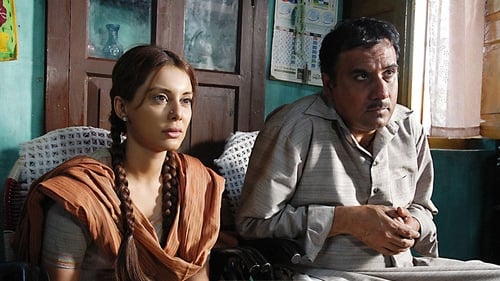
Director
This is the story of Armaan Ali, a driver working for a senior executive in Mumbai. He takes a month's leave to find a husband for his teenage daughter, who lives near Hyderabad. When he is delayed and returns to work after three months, his employer threatens to sack him. But he is persuaded to listen to the reason for Armaan Ali's delay. The story he relates is delightful, hilarious -- and poignant.

Story
Mahadev (Shreyas Talpade) is an unemployed graduate with a Bachelor of Arts from Satna college, who is forced to make a living writing letters for the uneducated people of his village. His real ambition is to become a novel writer. Through his humble occupation, Mahadev has the potential to impact numerous lives. The movie is a satirical, but warm-hearted portrait of life in rural India.

Director
Mahadev (Shreyas Talpade) is an unemployed graduate with a Bachelor of Arts from Satna college, who is forced to make a living writing letters for the uneducated people of his village. His real ambition is to become a novel writer. Through his humble occupation, Mahadev has the potential to impact numerous lives. The movie is a satirical, but warm-hearted portrait of life in rural India.
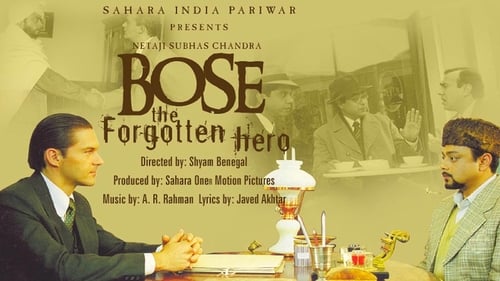
Director
Netaji Subhas Chandra Bose: The Forgotten Hero (also known as Bose: The Forgotten Hero) is a 2005 film directed by Shyam Benegal and starring Sachin Khedekar, Kulbhushan Kharbanda, Rajit Kapur, Arif Zakaria, and Divya Dutta. The movie depicts the last five years of the life of the Indian independence leader "Netaji" Subhash Chandra Bose. It starts out at the point where Bose resigns from his position as the president of the Indian National Congress (I.N.C.) to the meeting with Italians by crossing Afghanistan's rugged terrains and entering into Europe, to romancing his German secretary and appointment with Adolf Hitler in Berlin, to his inspiring of the Indian P.O.W.s (Prisoners Of War) of the 'Punjab Regiment' (British Army) for fighting against the British forces in India, to the patriotic speeches.
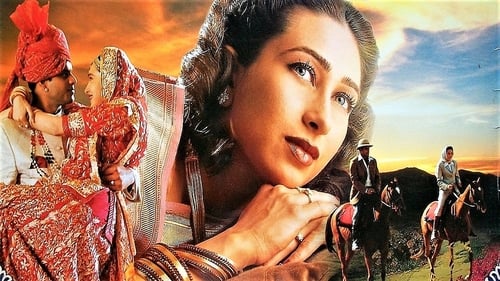
Director
Zubeidaa, an aspiring Muslim actress, marries a Hindu prince to become his second wife. Her tumultuous relationship with her husband, and her inner demons lead her to a decision which has fatal consequences for them all.

Director
Family Planning issues in a Muslim Hyderabadi family struggling between new and old values

Director
In a small village in Madhya Pradesh, two different communities fight over a water pump installation. When a member of one of the communities, Nathu (Kishore Kadam) decides to protest against a decision he feels is unjust, he angers the local land owner, who decides to impose economic sanctions on the community in an effort to starve them out of the village. When Nathu's house is burned down in mysterious circumstances, Nathu seeks the comfort of a temple, and prays for a solution. Instead he finds himself abused and beaten by the land owner for breaking a rule that bans members of Nathu's community from entering the temple. It later emerges that the situation in the area is being used as a plot for a film made in Bombay, however characters featured in the film are misrepresented, which leads to tension on the set and eventually violence spills.

Director
The struggles of Mohandas Gandhi in South Africa.
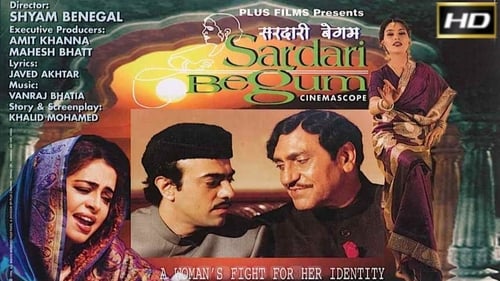
Director
Sardari Begum is a 1996 Hindi movie directed by Shyam Benegal. The film stars Kiron Kher, Amrish Puri, Rajit Kapur and Rajeshwari Sachdev. The film's lead actress Kiron Kher won the 1997 National Film Award - Special Jury Award. Rajeshwari Sachdev won the 1997 National Film Award for Best Supporting Actress. The music by Vanraj Bhatia also received wide acclaim. Arati Ankalikar-Tikekar, the play back singer of the film also received accolades in the category of 'Best Playback Singer'. This film focuses on the complex portrait of family relationships, generational and sexual politics as well as social mores in India.

Director
Mammo is an account of a certain period in the life of Riyaz, a teenager who lives with his grandmother Fayyazi as they get a visit from his grandma’s sister Mehmooda Begum Anwar Ali, commonly known as ‘Mammo’.
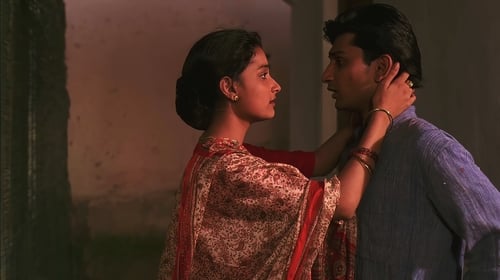
Director
A man shares some lazy memories about his friend, Manek Mulla, who had a knack for telling stories. On this particular afternoon, Manek narrates a 'unique' love affair with the help of different stories, various characters' point of views and the social relevance of these stories. As these stories proceed, reality mixes with fiction.

Self - director, cousin of Guru Dutt
This documentary is a three-part tribute to director Guru Dutt, who died in 1964 at the age of 39. The work traces Guru Dutt's personal story through many interviews with his family members and colleagues and observes his work through the use of extensive film excerpts. The documentary was produced by the British television network Channel 4 producer Nasreen Munni Kabir.

Producer
A story about the "Ikat" handloom weavers of Pochampally through the master weaver Ramulu and his family struggle in time of mass-production.

Director
A story about the "Ikat" handloom weavers of Pochampally through the master weaver Ramulu and his family struggle in time of mass-production.

Story
Set in 1961 Goa, this is a story of a rich and influential Goan family and what happens to them over a period of time. The movie is narrated in past-tense by one of the friends of the family.

Screenplay
Set in 1961 Goa, this is a story of a rich and influential Goan family and what happens to them over a period of time. The movie is narrated in past-tense by one of the friends of the family.

Director
Set in 1961 Goa, this is a story of a rich and influential Goan family and what happens to them over a period of time. The movie is narrated in past-tense by one of the friends of the family.

Script
Divided into three parts — The Awakening, The Struggle, and Freedom — this is a biographical film on Pandit Jawaharlal Nehru, the first Prime Minister of independent India. Relying on Nehru's writings and speeches, the film traces the evolution of Nehru from his birth through his life. It also deals with the effect of history on Nehru and in turn his impact on the world.

Director
Divided into three parts — The Awakening, The Struggle, and Freedom — this is a biographical film on Pandit Jawaharlal Nehru, the first Prime Minister of independent India. Relying on Nehru's writings and speeches, the film traces the evolution of Nehru from his birth through his life. It also deals with the effect of history on Nehru and in turn his impact on the world.

Director
Documentary on director Satyajit Ray, featuring an extensive interview and clips from his films, and location shooting of his film "The Home and the World."

Director
The denizens of a brothel deal with internal drama, as well as pressure from greedy land developers and an anti-sex work politician to leave town.

Director
Hari Mondal(Om Puri) is a poor village farmer who lives in the remote Bengal village of Giripur in Birbhum district with his wife, two sons, brother, an old widowed aunt Kalidashi (Gita Sen)and her daughter Panchi. The movie opens in the mid sixties when the Naxalbari uprising is spreading across Bengal and oppressed farmers are being united by youths who believe in communism and a socialist republic.

Writer
The film is tale of intrigue, plots and the inevitable war between the two families. Ramchand and Bhishamchand were two pioneering brothers in business. Bhishamchand, a lifelong bachelor brought up the two sons of Ramchand on his demise. He also gave the family business a firm foundation. Khubchand (Vinod Doshi) the elder son of Ramchand begets two sons, Dhanraj (Victor Banerjee) and Sandeepraj (Akash Khurana). Puranchand, Khubchand's younger brother had died a few years ago. His three sons are Dharamraj (Raj Babbar), Balraj (Kulbhushan Kharbanda) and Bharatraj (Anant Nag). Another player in the game is Karan (Shashi Kapoor) an orphan brought up by Bhishamchand.A series of events take place that bring the long hidden feud between the two families to light and despite Bhishamchand's efforts to mediate between the two, the situation gets out of hand and events take a tragic turn.

Director
The film is tale of intrigue, plots and the inevitable war between the two families. Ramchand and Bhishamchand were two pioneering brothers in business. Bhishamchand, a lifelong bachelor brought up the two sons of Ramchand on his demise. He also gave the family business a firm foundation. Khubchand (Vinod Doshi) the elder son of Ramchand begets two sons, Dhanraj (Victor Banerjee) and Sandeepraj (Akash Khurana). Puranchand, Khubchand's younger brother had died a few years ago. His three sons are Dharamraj (Raj Babbar), Balraj (Kulbhushan Kharbanda) and Bharatraj (Anant Nag). Another player in the game is Karan (Shashi Kapoor) an orphan brought up by Bhishamchand.A series of events take place that bring the long hidden feud between the two families to light and despite Bhishamchand's efforts to mediate between the two, the situation gets out of hand and events take a tragic turn.

Writer
Set during the 1857 War of Independence, an obsessed Indian Nawab desires to wed a young Anglo-Indian woman, but the girl's obstinate mother stands between them.

Director
Set during the 1857 War of Independence, an obsessed Indian Nawab desires to wed a young Anglo-Indian woman, but the girl's obstinate mother stands between them.

Screenplay
The film involves the life of a young man who comes to believe that he has been bestowed supernatural powers. As the story unfolds, this boon eventually leads to a tragedy.

Director
The film involves the life of a young man who comes to believe that he has been bestowed supernatural powers. As the story unfolds, this boon eventually leads to a tragedy.
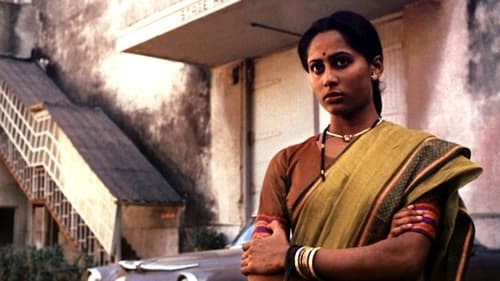
Screenplay
A girl learns music from her courtesan grandmother and breaks into the burgeoning show business industry of 1930s Bombay, which eventually leads to decades of superstardom as well as romantic entanglements.

Director
A girl learns music from her courtesan grandmother and breaks into the burgeoning show business industry of 1930s Bombay, which eventually leads to decades of superstardom as well as romantic entanglements.
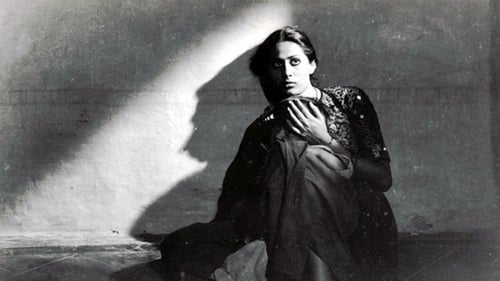
Story
A veterinarian, Dr. Rao, makes a visit to a village, where he intends to commence a co-operative society dairy for the betterment of the rural people. The film is set against the backdrop of the White Revolution of India (Operation Flood) which started in 1970. It was entirely crowdfunded by 500,000 farmers who donated Rs. 2 each.

Director
A veterinarian, Dr. Rao, makes a visit to a village, where he intends to commence a co-operative society dairy for the betterment of the rural people. The film is set against the backdrop of the White Revolution of India (Operation Flood) which started in 1970. It was entirely crowdfunded by 500,000 farmers who donated Rs. 2 each.
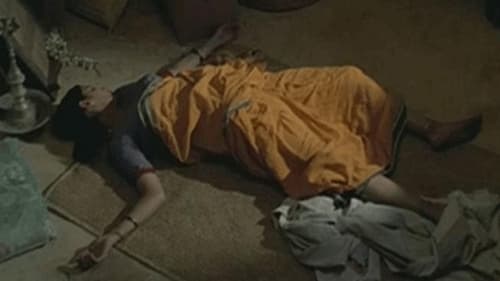
Director
A man whose wife is abducted seeks to have the culprits prosecuted for their crime, but no one will help him. Meanwhile, the wife—abused and berated by her abductors—cannot bring herself to face her husband.

Writer
The film is derived from a classic folk tale, originally narrated by Vijaydan Detha, and interpreted as folk play by Habib Tanvir. The film charts the tumultuous life of a petty thief, Charandas (Lalu Ram). Curiously he is a man of principles – an honest thief with a strong sense of integrity and professional efficiency. He makes four vows to his Guru, that he would never eat in a gold plate, never lead a procession that is in his honour, never become a king and never marry a princess, thinking all of them are far out possibilities for him. Later, his guru adds a fifth one - never to tell a lie and sets him of on his life's journey which leads him to a kingdom..

Director
The film is derived from a classic folk tale, originally narrated by Vijaydan Detha, and interpreted as folk play by Habib Tanvir. The film charts the tumultuous life of a petty thief, Charandas (Lalu Ram). Curiously he is a man of principles – an honest thief with a strong sense of integrity and professional efficiency. He makes four vows to his Guru, that he would never eat in a gold plate, never lead a procession that is in his honour, never become a king and never marry a princess, thinking all of them are far out possibilities for him. Later, his guru adds a fifth one - never to tell a lie and sets him of on his life's journey which leads him to a kingdom..

Screenplay
Laxmi lives a poor lifestyle in a small village in India along with her husband, Kishtaya, who is a deaf-mute. Both husband and wife work for the wealthy landlord. The landlord's son, Surya, has to cancel his studies and return home to look after the estate, as well as formalize his marriage to Saroj, the girl he was compelled to get married to when he was very young. Shortly thereafter Kishtaya is apprehended stealing toddy from the fields, is severely beaten, left senseless, and when he recovers he absconds, leaving Laxmi alone to fend for herself.

Director
Laxmi lives a poor lifestyle in a small village in India along with her husband, Kishtaya, who is a deaf-mute. Both husband and wife work for the wealthy landlord. The landlord's son, Surya, has to cancel his studies and return home to look after the estate, as well as formalize his marriage to Saroj, the girl he was compelled to get married to when he was very young. Shortly thereafter Kishtaya is apprehended stealing toddy from the fields, is severely beaten, left senseless, and when he recovers he absconds, leaving Laxmi alone to fend for herself.

Producer
A documentary on the life of the youth in post-Independence India.

Writer
A documentary on the life of the youth in post-Independence India.

Director
A documentary on the life of the youth in post-Independence India.














